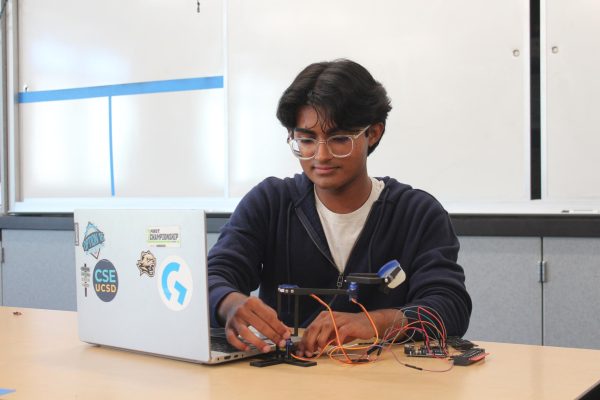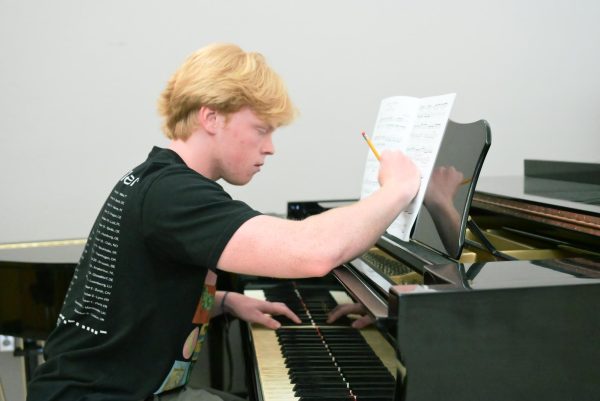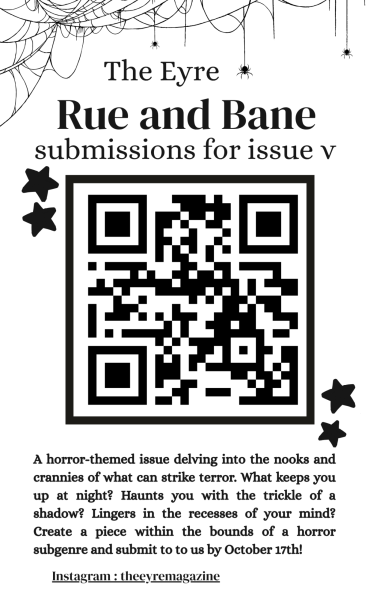Colleges employ variety of methods to combat cheating
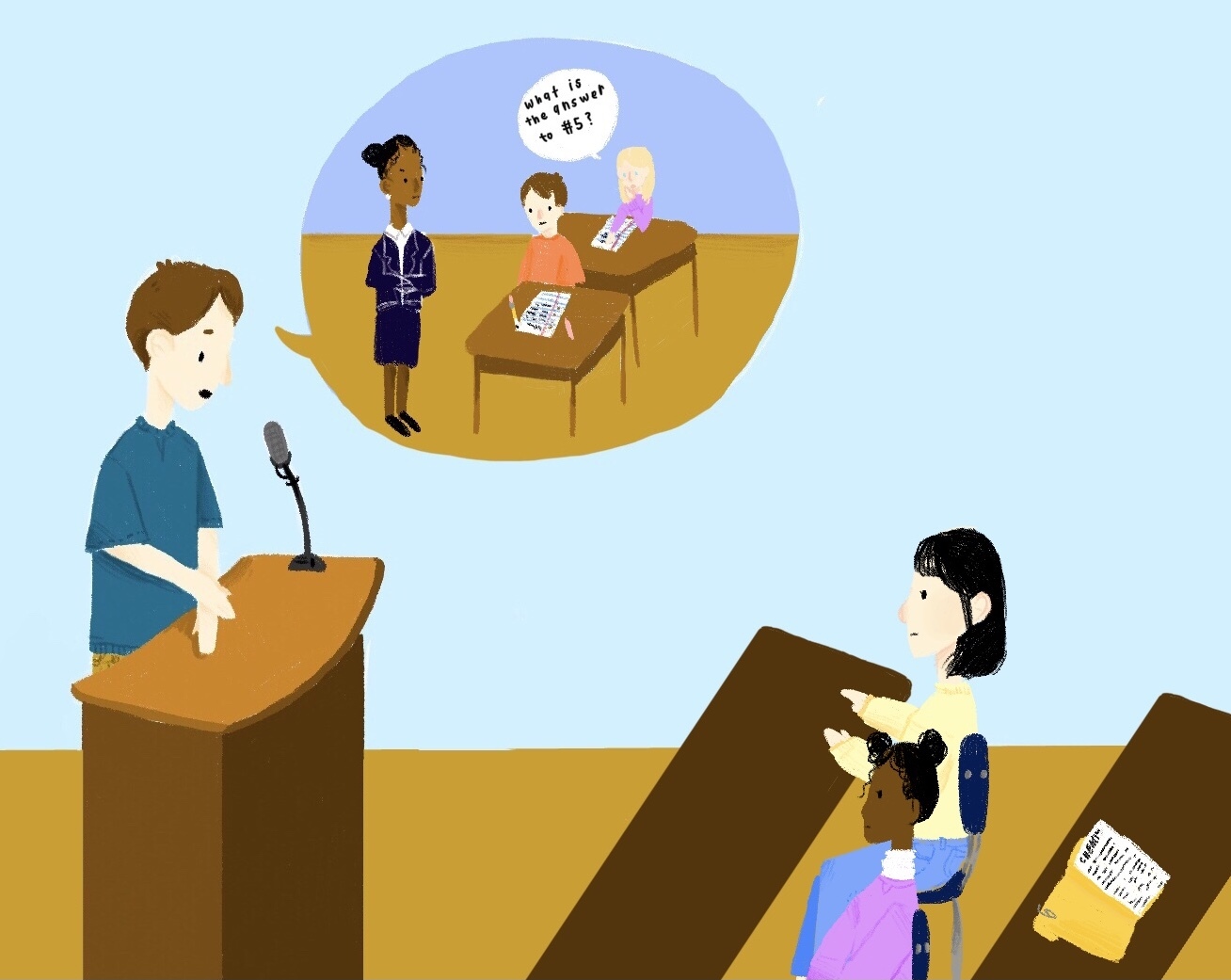
Distance learning presented a new problem to schools and teachers: How can you catch students cheating if all work is being done electronically?
Access to the internet opens a world of possibilities to students, with ways to cheat that are nearly untrackable by teachers.
History teacher Kelly Stimpson discussed how her most common experiences were “wandering eyes” and plagiarism.
Like Stimpson, many teachers use Canvas for students to turn in assignments and essays, which has programs to check for plagiarism. So, according to Stimpson, the issue of plagiarism can be solved just as easily online as when in-person.
However, cheating issues such as “wandering eyes” are amplified during distance learning, with students able to use their phones, textbook, and notes on tests, especially if their camera is turned off. Students can also collaborate with friends and classmates to search for or share answers, making tests and assignments incredibly quick and easy. The possibilities are really endless for how students can cheat in the online environment.
“Catching students cheating, especially on tests, is more difficult online,” Stimpson said.
Westview has a tier-based policy to combat cheating, and the policy has remained the same through distance learning. The policy defines cheating as anytime a student passes off another’s work as their own, and each time a student violates the policy and has three tiers increasing in severity of punishment.
But when it comes to how colleges deal with academic honesty violations, they differ harshly from high school policies.
College professors also utilize Zoom meetings and Blackboard, a platform similar to Canvas, to communicate with students, but for tests and assignments, colleges have different approaches.
According to Howard University freshman Alyssa Burkeen (’20), her college is very lenient when it comes to tests and quizzes, though it does have a policy to punish cheating.
“There is no secure browser so tests are fairly open internet,” Burkeen said. “But the professors promote the taking and use of our own notes instead of using the internet.”
However, this does not completely eliminate cheating, with the International Center for Academic Integrity (ICAI) reporting that 68% of undergraduate students surveyed in 2016 admitted to cheating of some sort. Howard is not exempt from this statistic, with Burkeen discussing how students in her class cheat.
“I know students cheat by sharing answers via a group chat,” Burkeen said. “I’m not a part of the chat, but it’s fairly well known among students.”
Another approach to preventing academic dishonesty that some colleges have taken is implementing an honor code. These codes are a set of rules that constitute academic and sometimes campus-wide policies, as well as the punishment for breaking any of the listed rules. The New York Times reported on how some colleges use these codes as a P.R. stunt, but colleges that take the code seriously saw an effective reduction in academic dishonesty.
Harvey Mudd College is one such college, using the honor code to give students various campus freedoms, ensuring they stay academically honest. Even when students are thought to have violated the code, they hold student moderated hearings where students can argue their case and receive a punishment if found guilty. The code is an integral part of the campus culture, with a relationship of trust built between students and faculty, according to Andrea Chen (’19), a sophomore at Harvey Mudd.
“The honor code is really a part of the campus culture here,” Chen said. “Mudd has smaller class sizes than normal, so professors can usually tell when a student is cheating. But professors almost always give you the opportunity to turn yourself in if you have cheated.”
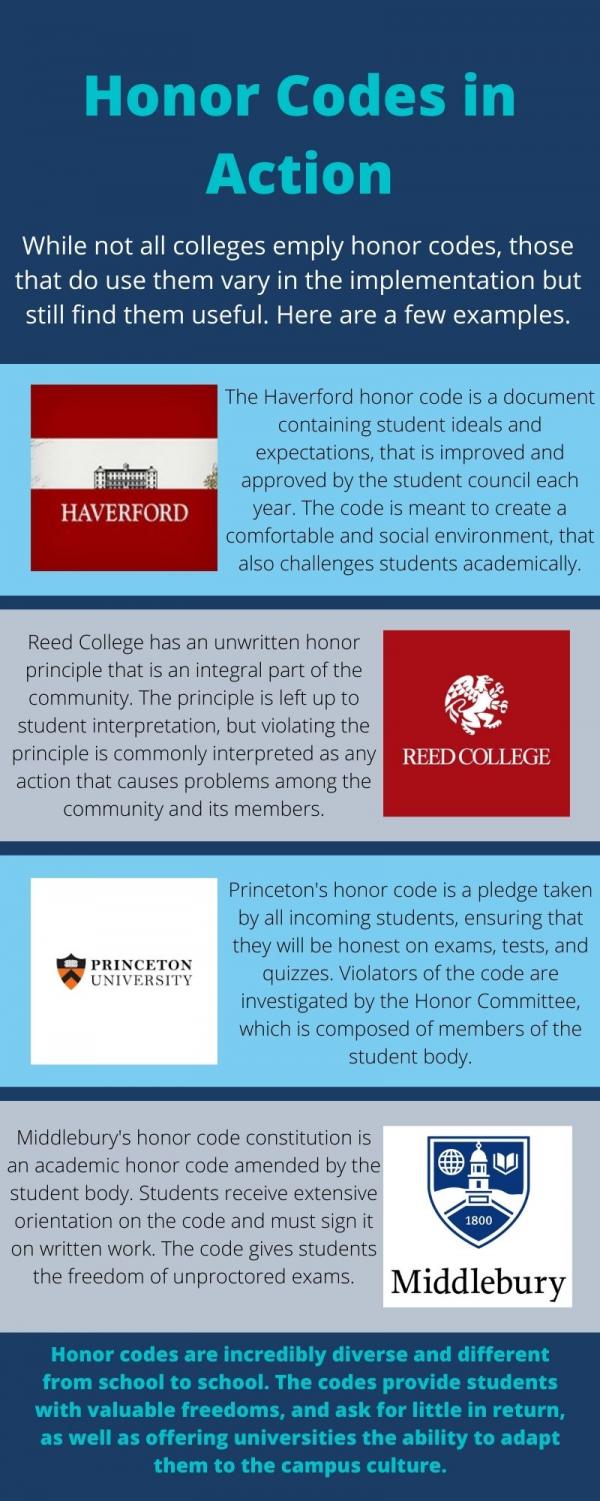
Because the honor code was already such an ingrained part of the culture, no major changes to the honor code were necessary once distance learning went into effect. As part of the code, students are encouraged to talk to their professors about deadline extensions for work and papers, and instances of academic dishonesty are fairly minor, according to Chen.
“People self-report a lot, especially for small things like using a calculator on a test,” Chen said. “Because we can talk to our professors so freely, there’s not many instances where we’d actually need to cheat.”
Mudd eases the transition to college life through a pass/fail grading system for a semester of freshman year, as well as a system of trust built by the honor code.
“One of the goals of the honor code at Mudd is to trust students with certain freedoms and ensure everyone is responsible for their actions,” Harvey Mudd Judiciary Board Chair Nico Espinosa Dice said.
Dice deals with all cases of academic dishonesty and mediates honor board hearings and meetings between honor code violators and their professors.
“There are many opportunities to cheat, especially during take-home exams, but I think students value the trust and responsibility,” Dice said. “Most students who are academically dishonest are first-time or minor offenders.”
The honor code at Harvey Mudd provides students with freedoms and responsibilities that can be taken away when students violate the code. According to an article from Higher ED Connects, these freedoms and the establishment of trust are essential for honor codes to work, ensuring that students have a reason not to cheat.
Because students are not eager to lose these freedoms, the honor code at Harvey Mudd is proof that limiting academic honesty is possible, and, according to Dice, comes with no major downsides.
While they take different approaches, both Harvey Mudd and Howard University provide students with strategies to perform at a high level without need for academic dishonesty.
“One of the goals of the honor code, and I think colleges in general, is to reduce the pressure on students and give them the tools to succeed,” Dice said.
And the use of an honor code to restrict cheating can be used at the high school level.
“My old school, Academy of Our Lady of Peace, used an honor code,” said area administrator Teri Heard. “We saw a proportion of cheating cases similar to the amount at Westview.”
With honor codes being very flexible in their implementation, Westview could even utilize a form of honor code to combat the issue of cheating. Especially with Westview’s high level classes, an honor code would benefit students, granting them certain freedoms in exchange for not cheating.
“Coming from a school like Westview prepares you for college. Most students really don’t need to cheat, and with the honor code, there’s really no reason to sacrifice any of the freedoms we’re given,” said Chen.
For more information, refer to the other two parts of our cheating series.



